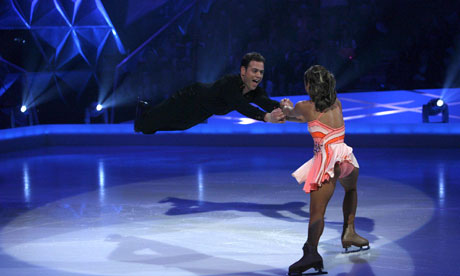
ITV pioneers new micropayments strategy
By Kate Bulkley
July 13, 2012
Strategy forms a key part of ITV's five-year transformation plan and will give the broadcaster more independence from advertisers, reports Kate Bulkley

The launch of ITV's new online payments strategy at the end of summer will be an interesting testing ground to see how well micropayments work for the UK's major TV broadcasters.
It has taken more than two years to appear in the marketplace, but fans of ITV programmes will soon have the opportunity to pay between 99p and £4.99 for a choice of programmes, starting with 1,000 hours of older, archived shows, with online premieres and box set offers for entire series coming soon.
In addition, while seven-day catch-up will still be free and ad-supported, viewers can extend the free window for up to 30 days on certain content if they register. When viewers opt for paid-for on demand programmes there will be no advertisements at all.
With over 5 million active ITV Player users every month, it seems clear that there is potential market for a paying audience, especially as ITV will also offer premieres and early viewing of new episodes for a fee.
It means high-rating series like Downton Abbey could be previewed on ITV Player for a micropayment before it is broadcast on the channel. Plus a chance to view online box sets – such as an entire series of The Only Way Is Essex – could also be another way to make micro payments more palatable to an audience.
ITV's managing director of commercial and online, Fru Hazlitt, says that micropayments are an "obvious" thing for ITV to do given that the broadcaster saw 15m "interactions" with ITV's programmes in 2011, either through people voting during shows like Britain's Got Talent or using apps like the Got Talent buzzer.
"The micropayments plan is not about putting content behind a pay wall," says Hazlitt. "It's about giving people something more."
ITV has actually done a deal with Lime Pictures, the creator of The Only Way Is Essex, to offer the video on demand (Vod) online box set, but there is a mountain to climb for ITV in securing the rights from other independent producers for other ITV series, which is one obvious sticking point. That's why at launch ITV will be relying a lot on content from its own in-house production business, ITV Studios, particularly drama shows like Morse, Prime Suspect and A Touch of Frost. Drama and series have proved a draw for subscription online services like Netflix and the premium portion of Hulu in the US.
The micropayments strategy is a key part of ITV's five-year transformation plan to diversify the commercial broadcasters' revenue away from its heavy dependence on spot TV advertising. To achieve the goal of half of revenues from non-TV advertising sources, ITV is ramping up ITV Studios to work harder and better, both in creating more programmes for ITV and in selling them around the world.
But its pay strategy is also really important to the transformation plan because not only is TV advertising a cyclical business but also because while people still love watching TV, they are increasinly doing so on other devices other than the living room television, and at times other than those advertised on the TV schedule.
These are trends that on demand services and micropayments are built to satisfy, and ITV is hoping to build on the increasing demand for Vod. It reported long-form video views were up in 2011 by 44% to 376m and online revenues up 21% to £34m, which was only a tiny part of ITV's overall external revenues of £2.14bn. In the first three months of this year, ITV reported 110m Vod views, up 24% on the same time last year.
Only days after revealing the micropayment strategy, ITV announced that it will sack 40% of its current online team but this is not an indication of any diminishing importance in itv.com, but a re-focusing from text-based websites that require manpower to maintain them and more attention to interactive ideas to engage viewers who are already moving towards that kind of relationship with the channel.
Aside from the 15 million viewers who interacted with ITV programmes such as Dancing On Ice in 2011, where people could act as judges via an app, some 200,000 people also downloaded the Dancing on Ice app during the series and usage peaked at 56,000 concurrent users. Some 250,000 football fans watched an England game on an ITV Apple IOS-enabled app at one time during Euro 2012. The Got Takent buzzer app had peak traffic of 250,000 and the Tap to Clap XFactor app had 200m interactions over the course of the series. And of course, ITV creates commercial sponsorships around all these apps.
Crozier's belief is that if the channel heads in this direction of engaging with viewers and offering them more ways to access its content then there is money to be made. ITV is breaking new ground but the BBC has also announced (controversially) that it plans to offer some programmes for payment once they are out of the BBC iPlayer catch-up window.
The move into micropayment was described by ITV's Hazlitt recently as offering consumers "a little bit more, for a little bit more."